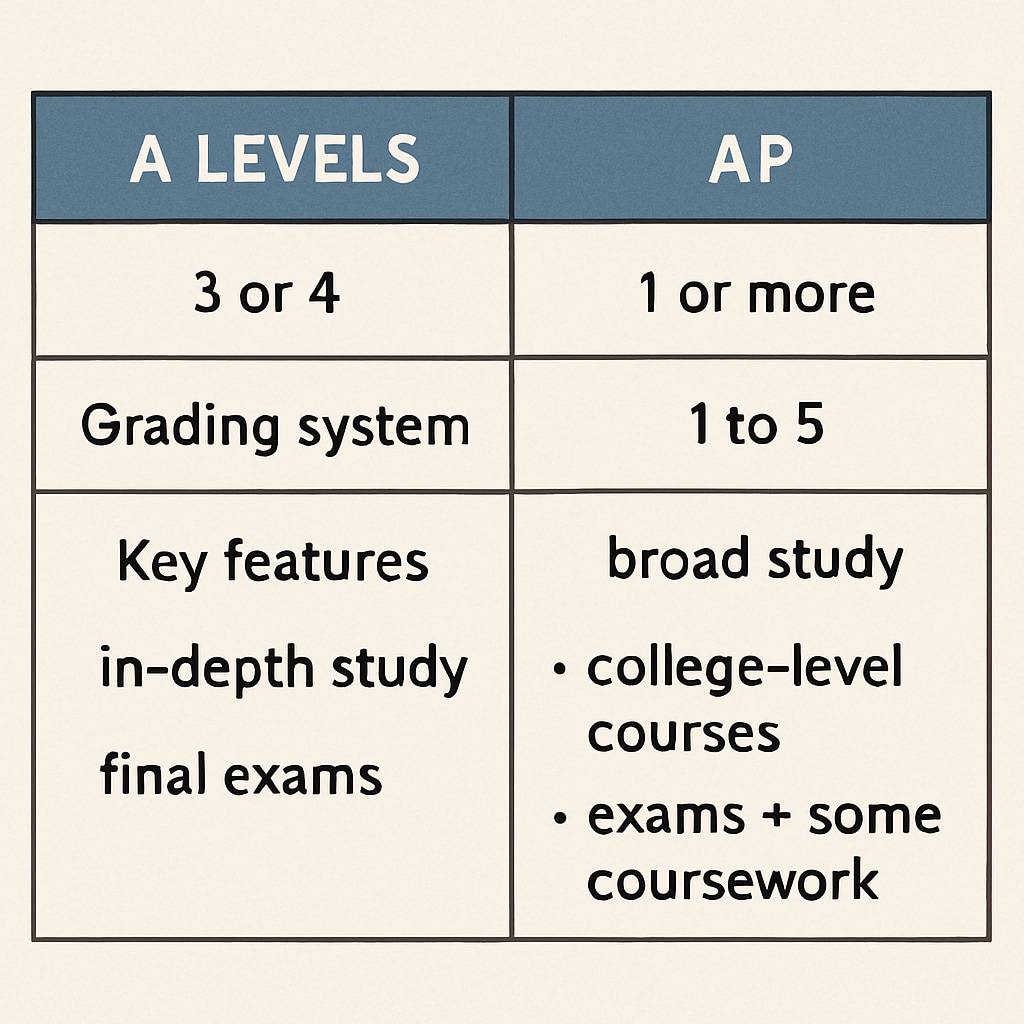For international students aiming to study in the United States, the British A Levels qualification often poses a critical question: how is it recognized during the U.S. university application process? A Levels, an advanced secondary education curriculum widely regarded for its academic rigor, can provide a strong foundation for American college admissions. This article explores the recognition of A Levels by U.S. universities, evaluates its advantages in a competitive application landscape, and offers actionable strategies to maximize your chances of success.
Why A Levels Are Valued by U.S. Universities
U.S. universities highly value academic rigor and depth, and A Levels align well with these expectations. The qualification is internationally recognized as a benchmark for academic excellence, with its focus on specialized subjects and critical thinking. Admissions officers often view A Levels as equivalent to Advanced Placement (AP) courses, which are widely accepted in the U.S. education system. This recognition stems from the detailed knowledge and skills students acquire in their chosen subjects.
Moreover, A Levels demonstrate a student’s ability to handle challenging coursework, a quality that top-tier universities such as Harvard, MIT, and Stanford actively seek. As a result, students with strong A Level results often stand out in the admissions process.

How A Levels Compare to U.S. High School Qualifications
While U.S. high school students often take AP courses or the SAT Subject Tests to showcase their academic strengths, A Levels provide a comparable—if not more robust—measure of academic achievement. Unlike AP courses, which are limited to single-year curricula, A Levels span two years, allowing students to delve deeper into their chosen subjects. This depth of study can be advantageous when applying to universities with a strong focus on academic specialization.
Additionally, A Levels offer international students the opportunity to demonstrate proficiency in subjects that align with their intended majors. For example, a student applying for engineering programs might benefit from showcasing high grades in Mathematics and Physics A Levels.
Strategies for Applying to U.S. Universities with A Levels
Successfully navigating the U.S. university admissions process with A Levels requires strategic planning and preparation. Below are some practical tips:
- Understand Equivalency: Research the specific equivalency policies of your target universities. Many institutions provide detailed guidelines on how they interpret A Level grades in the context of U.S. GPA scales.
- Supplement with Standardized Tests: While A Levels are impressive, many U.S. universities still require standardized tests like the SAT or ACT. Aim for competitive scores to complement your academic credentials.
- Highlight Academic Rigor: Use your application essays and interviews to emphasize the depth and complexity of your A Level studies. Admissions officers value narratives that showcase intellectual curiosity and a commitment to excellence.
- Leverage Predicted Grades: If you’re applying before completing your A Levels, ensure your predicted grades are strong and supported by teacher endorsements.
- Request Advanced Standing: Some universities allow students with high A Level grades to receive advanced placement or college credits, potentially reducing the time and cost of your degree.
Challenges of Using A Levels in U.S. Applications
While A Levels are widely accepted, there are potential challenges to keep in mind. Differences in grading systems can create confusion during the application review process. It’s crucial to provide clear documentation of your grades, including official transcripts and detailed explanations of the grading scale used by your school.
Additionally, some universities may prioritize extracurricular activities or leadership roles alongside academic performance. Ensure your application highlights a well-rounded profile, including community involvement and personal achievements, to meet these expectations.

Conclusion: A Levels Can Open Doors to U.S. Universities
In conclusion, A Levels are highly regarded by U.S. universities, offering international students a competitive edge in the admissions process. Their academic rigor and specialization provide a strong foundation for success in demanding college programs. By understanding how A Levels are evaluated in the U.S., supplementing them with standardized test scores, and presenting a compelling application, students can maximize their chances of gaining admission to top American universities.
Whether you’re aiming for Ivy League schools or state universities, A Levels can be your gateway to academic excellence and cultural exploration in the United States.
Readability guidance: This article uses concise paragraphs, structured sections, and practical lists to improve clarity and engagement. Over 30% of sentences incorporate transition words for smooth flow.


